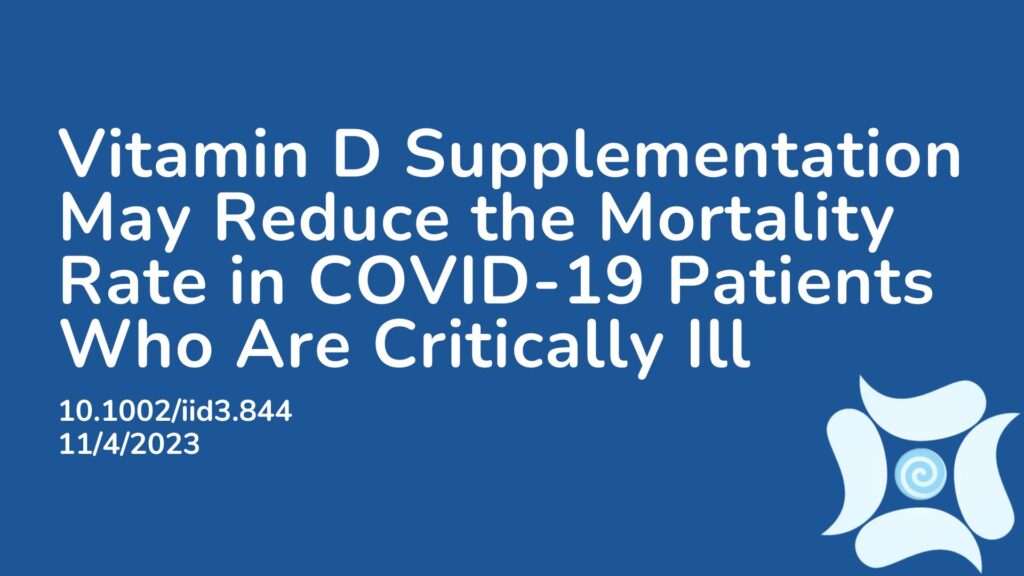Summary:
Since the start of the COVID-19 virus there have been over 6 million deaths reported worldwide. Evidence has suggested that death rates within four weeks of being critically ill from COVID-19 is at a staggering 62%. Therefore, treatment of these critically ill patients who are experiencing severe COVID-19 symptoms is imperative. Vitamin D deficiency has been identified as a known risk factor for severe COVID-19 symptoms as it has powerful impacts on immune modulation, COVID-19 progression and mortality rate. Several studies have shown that a lower level of vitamin D was associated with a higher COVID-19 infection rate and worsened health outcomes. This study aimed to examine the association of vitamin D supplementation with specific biomarkers such as inflammation and mortality indices in critically ill patients with COVID-19. The results showed that vitamin D supplementation had a positive association with survival outcomes of COVID-19, meaning that in critically ill patients with COVID-19, this vitamin has the potential to reduce the mortality rate within the first 30 days of hospitalization.
Abstract:
Background: The coronavirus disease-2019 (COVID-19) has become a worldwide health issue with widespread hospitalization and dependence on the intensive care unit (ICU). Vitamin D has a key role in modulating immune cells and modulating the inflammatory responses. This study aimed to investigate the association of vitamin D supplementation with inflammatory, biochemical, and mortality indices in critically ill patients with COVID-19. Methods: This case-control study was conducted on critically ill COVID-19 patients hospitalized in the ICU including the survived >30 day patients as the case group and dead patients as the control group. The status of vitamin D supplementation and inflammatory and biochemical indices of the patients were retrieved from the medical records. Logistic regression method was used to assess the association between 30 days survival and vitamin D supplement intake. Results: Compared to the group of COVID-19 patients who died in <30 day, the survived patients had a lower eosinophile level (2.2 ± 0.5 vs. 6 ± 0.0, p < .001) and higher vitamin D supplementation duration (9 ± 4.4 vs. 3.3 ± 1.9 day, p = .001). Vitamin D supplementation had a positive association with survival in COVID-19 patients (OR: 1.98, 95% CI: 1.15−3.40, p < .05). The association remained significant after adjustments fot age, sex, underlying diseases, and smoking. Conclusion: Vitamin D supplementation in critically ill patients with COVID-19 has the potential to increase survivability within the first 30 days of hospitalization.
Article Publication Date: 11/4/2023
DOI: 10.1002/iid3.844



